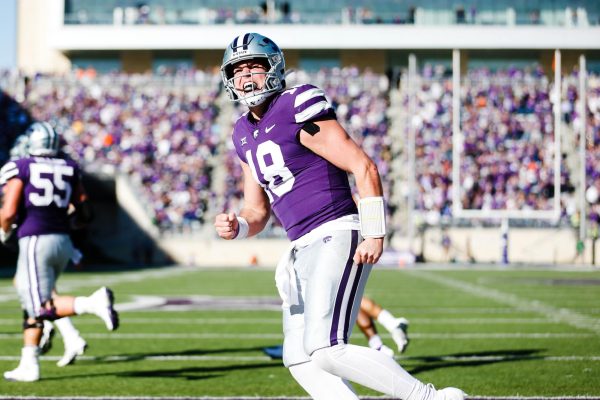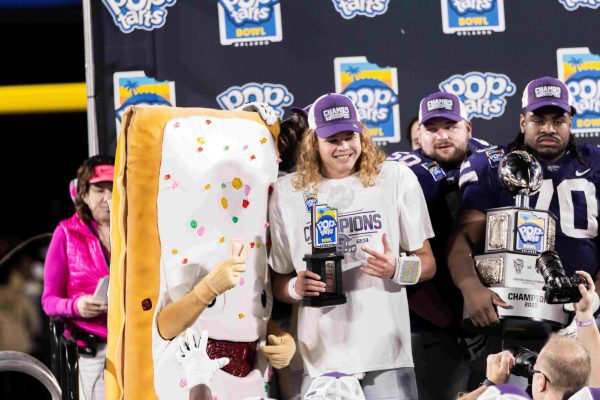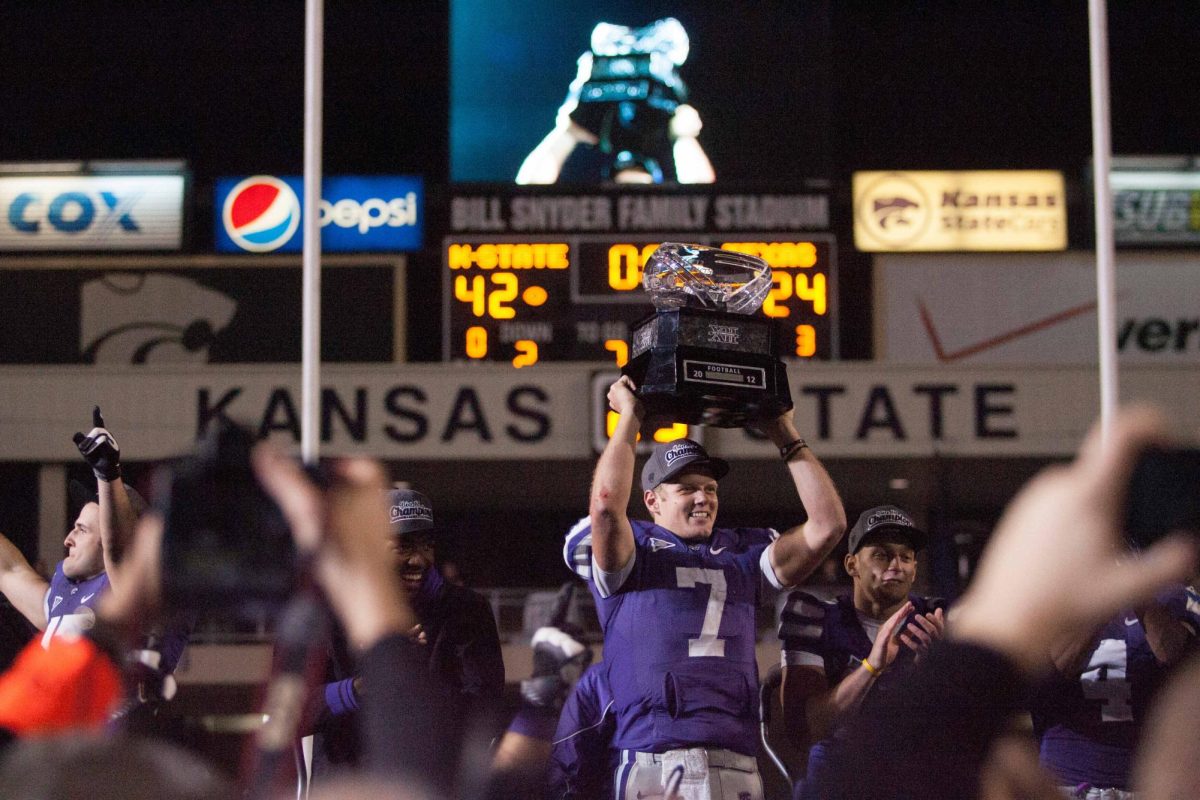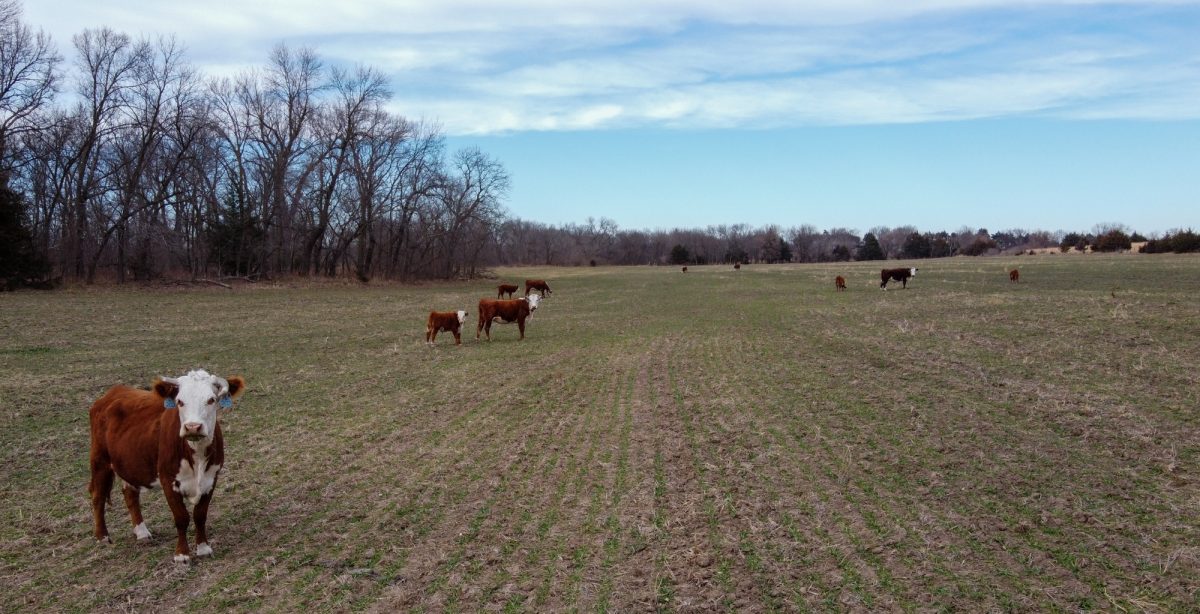Through the ranks of “Futility U,” a No. 1 ranking and now a potential playoff berth, Kansas State football has seen several star-studded signal callers. But who exactly is the greatest quarterback in K-State history?
Immediately, the names who brought the Wildcats closest to a national title come to mind: Heisman finalists — and No. 7’s — Michael Bishop and Collin Klein.
Klein owns the program record for most total touchdowns in a career with 86, placing him vastly ahead of the next-closest QB in Ell Roberson at 77. Furthermore, Klein is in the top 5 for total yards and passer rating in a K-State quarterback career.
Bishop’s prowess came from perhaps the greatest season by a K-State quarterback, setting program records for single-season passing efficiency at 158.9 and yards per game at 299.3 in 1998.
Field generals like Ell Roberson, Josh Freeman, Jake Waters, Jonathan Beasley and Chad May have a say — Freeman, Roberson and Waters in particular, whose passing numbers largely rank ahead of Bishop and Klein.
While those staples of the Bill Snyder era — sub Freeman — highlight a more memorable time in K-State history, let’s not forget the reason No. 11 is retired: Steve Grogan and Lynn Dickey.
Their performances masked a dark time in K-State football before Snyder’s arrival. Both went on to successful NFL careers, including landing in the Patriots and Packers Hall of Fames, respectively.
Most recently, Will Howard and Skylar Thompson have put their name into the conversation with tenured careers under center, placing Howard as the Wildcats’ leader in career passing TDs, followed by Thompson in third.

While acknowledging every college career has its limitations — backup years, injuries, etc. — it still appears a No. 7 earns the title of greatest of all time.
Klein and Bishop’s team success accolades and imprint on the record books are eerily similar. But when it comes down to it, I’d give Bishop the edge for his lead in passer rating.
To round out the podium, each of Freeman, Waters, and Roberson have a compelling argument. If passer rating is your preference, Waters is the guy while successful postseason play would give Roberson an edge.
Despite the storied careers of all of the quarterbacks mentioned, sophomore Avery Johnson has arguably the highest expectations attached to his name. His promise raises the question: Can he become the greatest quarterback in K-State history?
The eye test provides a resounding yes, but what numbers does he need to meet? Klien and Bishop each earned their ranks as dual-threat QBs, providing a similar comparison to Johnson.

For Johnson to become a Heisman winner, Ryan Moss found he needs a game average of 269 pass yards, 2.5 pass TDs with 77 rush yards and 1.2 rushing TDS.
Dialing it back a little — to an All-Big 12 level — let’s assume Johnson plays 26 more career games as the starter with an average of 250 pass yards, 50 rush yards, two pass TDs and one rush TD. In a 13-game season, that equates to 3,900 total yards and 39 total touchdowns, which is neck-and-neck with last year’s All-Big 12 quarterback Dillon Gabriel.
On that pace, how would a two-year starting career — the same as Klien and Bishop — compare to their prized production? The numbers show he would be well in contention for the greatest passer in K-State history.
Though a No. 7 is largely the consensus greatest gunslinger in program history, a No. 2 could be on the horizon. Time will tell in seven short sleeps until the 2024 season.



























































































































